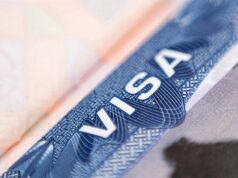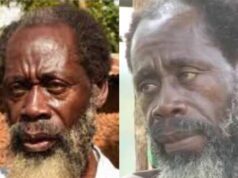Estonia is a very entrepreneurial country in Europe which boasts a lot of thriving start-up companies.
A number of world-renowned technology companies were born in Estonia and the country’s citizens and e-residents could get things done fast and efficiently.
The country is the first to function as a digital service and is also the first country in the world to vote online.
The Consul General of Estonia, Hon. Nabil M. Basbous, disclosed this to the Daily Graphic in an exclusive interview on the occasion of the celebration of the 101st anniversary of the proclamation of the independence of Estonia.
Trade
Touching on the country’s trade, he said in 2017, the share of European Union countries in Estonia’s total exports was 71 per cent, while total imports reached 82 per cent.
The main export goods included machinery and equipment, as well as wood.
The Consul General noted that in the same period, export of goods totalled 12.8 billion euros while total imports amounted to 14.7 billion euros.
He touched on current statistics and said in 2017, the exports of goods increased by eight per cent and imports rose by nine per cent.
Honourable Basbous said Estonian foreign trade was mainly based on strong economic ties with Finland, Sweden, Latvia, Germany, Lithuania and Russia, among other countries.
Relations with Ghana
The Consul General was happy to announce that the President of Estonia, Mrs Kersti Kaljulaid and Ghana’s President, Nana Addo Dankwa Akufo Addo, held bilateral meeting when they met in New York, United States, for the 73rd Session of the UN General Assembly.
He said the discussions sought to deepen the already cordial relations between Estonia and Ghana.
“Estonia and Ghana shared common interests and the meeting also sought to enable the two countries to explore further areas”, he stressed.
The declaration
The Consul General traced the historic event that occurred on February 24, 1918when the Salvation Committee (Päästekomitee) declared the independence of the Republic of Estonia.
He said the date was celebrated as Independence Day until the Soviet occupation of Estonia in 1940.
After declaring its independence, he said Estonia was forced to fight a war of independence against Soviet Russia and German forces.
During this war, Estonia secured its borders and signed the Tartu Peace Treaty with Soviet Russia on February 2, 1920.
For centuries, he noted that the Estonian people dreamed of establishing a state free from foreign domination.
On April 8, 1917, he said 40,000 Estonian organisations and military personnel held a demonstration in Petrograd (St. Petersburg) in support of Estonian self government.
The Consul General noted that the peaceful demonstration achieved its goal when on April 12, the Russian Provisional Government signed the Law on Estonian Autonomy, which united the Livonian counties of Tartu, Võru, Viljandi, Pärnu and Saaremaa with Estonia.
For the first time, an Estonian, Jaan Poska, was appointed a Provincial Commissioner of Estonia.
He pointed out that a six-member Provisional National Council, the Maapäev, was formed and appointed a national executive that began to organise and modernise local government and educational institutions.
Celebration
Activities organised on the day included a traditional parade at Talinn by the Estonian Defence Forces and a state reception hosted by the President of the Republic of Estonia.
Other activities were wreath-laying ceremonies on graves of Estonian figures, while the people indulged in traditional Estonian dishes such as rye bread with garlic/cucumber sauce, bean soup, ‘sauerkraut’ stew and ‘kama’ for dessert.























